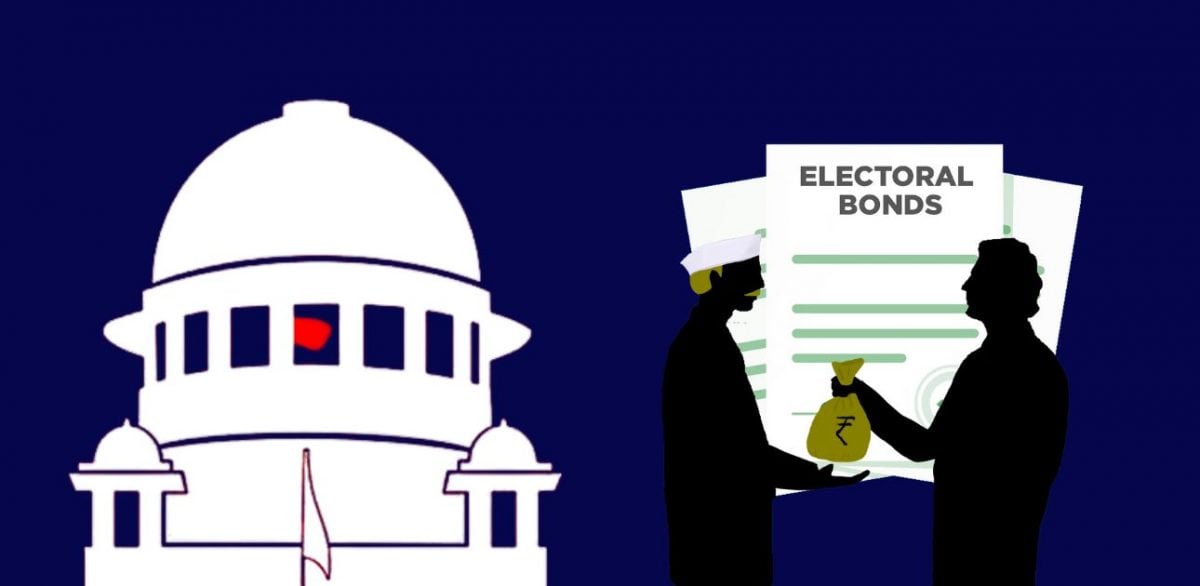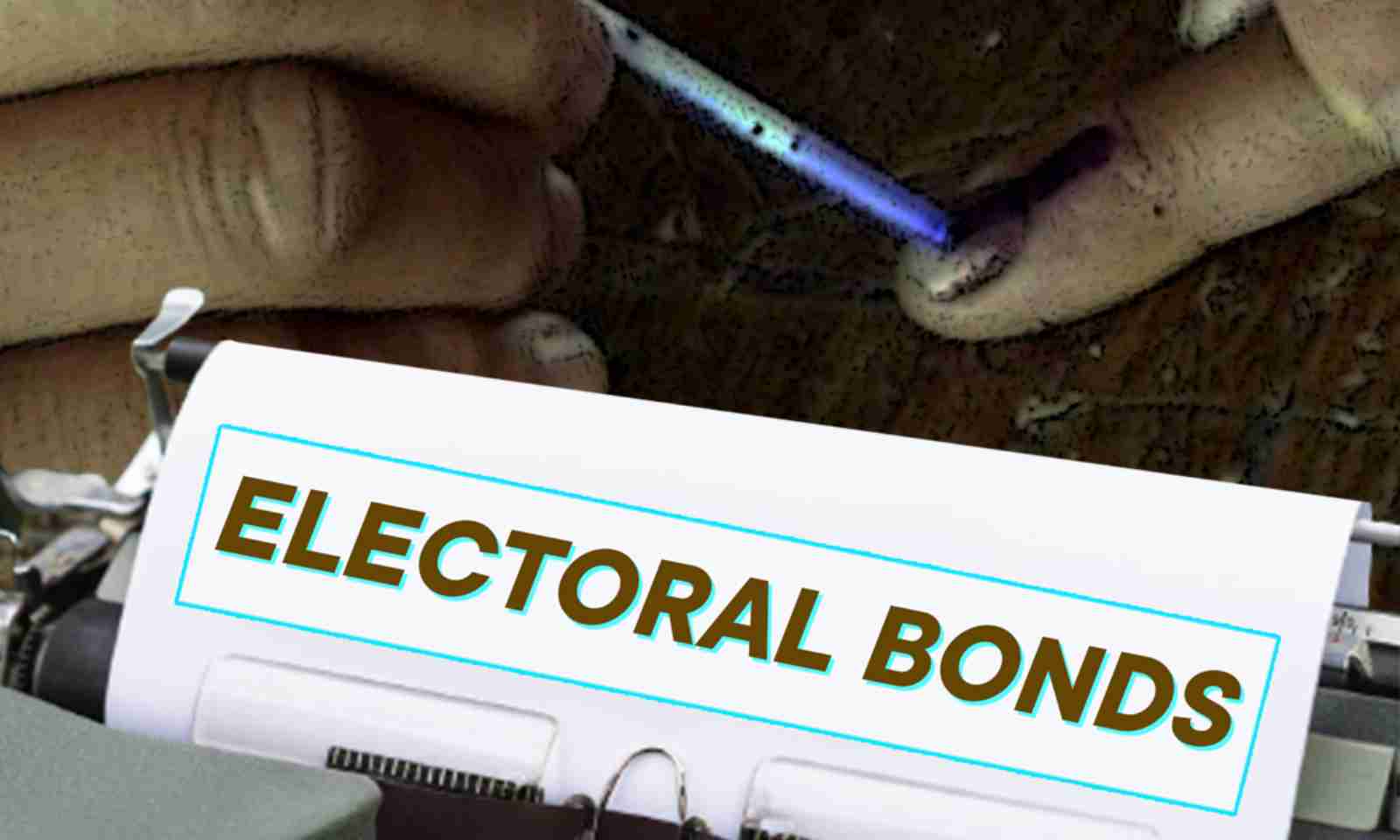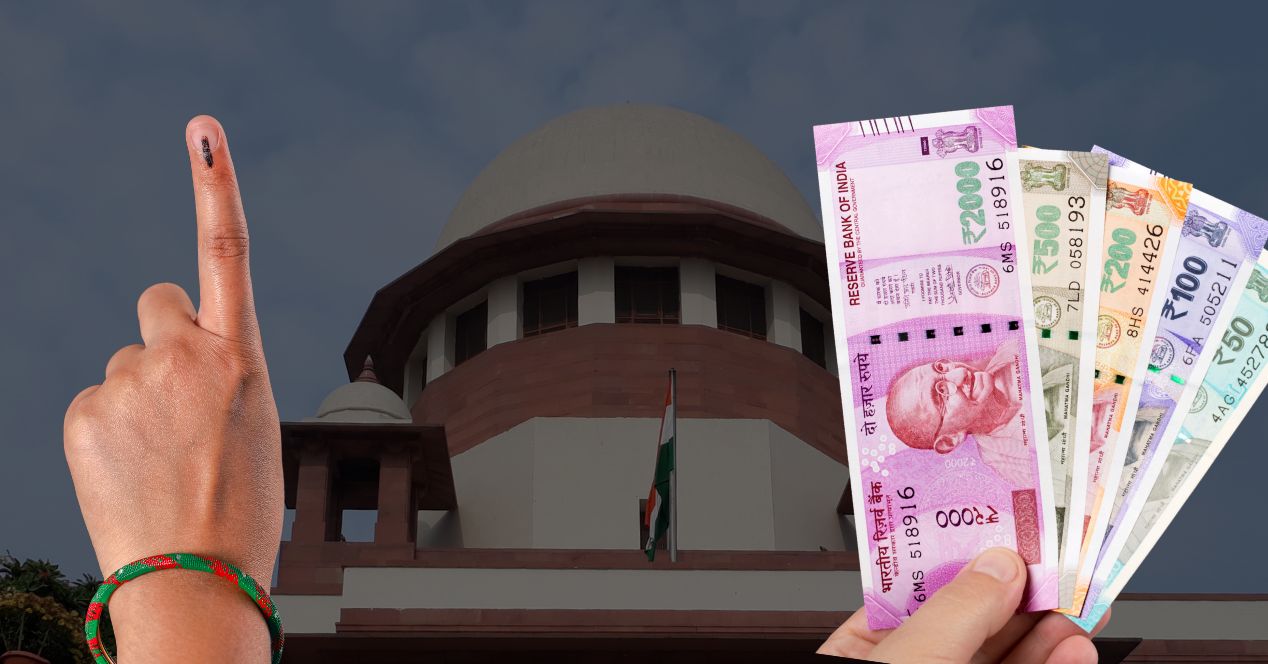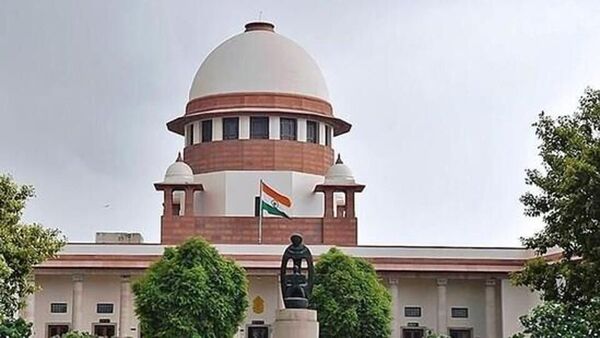Supreme Court on Electoral Bonds: During the brief 15-day period that defines their duration, electoral bonds may only be attributed to political parties that are officially recognized by the Representation of the People Act. Only political parties that received at least 1% of the total votes cast in the most recent general election for the Legislative Assembly or Lok Sabha are eligible to receive donations using electoral bonds.
 The electoral bond program has been canceled by the Supreme Court.
The electoral bond program has been canceled by the Supreme Court.
The Supreme Court rendered a decision on the petitions contesting the legality of the Electoral Bond Program on Thursday. In reviewing petitions contesting the legality of the electoral bond program, the highest court declared: “It is not justifiable to violate the right to information to stop the use of illicit money. The electoral bond plan is an infringement on the freedom of speech and access to information.” “Non-disclosure of funding information by political parties is contrary to the objective.”
 Guidelines for Sharing Electoral Bond Data by March 31st
Guidelines for Sharing Electoral Bond Data by March 31st
The court has mandated an immediate end to electoral bonds. In an order given by the court. “State Bank of India (SBI) should give all the details of contributions made so far through electoral bonds to the Election Commission by March 31.” Additionally, the Election Commission was ordered by the court to post the material on its website by April 13. Chief Justice of the Supreme Court DV Chandrachud stated that every judge hearing this issue has reached a unanimous decision. Regarding petitions contesting the legality of the central government’s electoral bond program. Chief Justice DY Chandrachud states that there are two distinct, unanimous rulings: one authored by him and the other by Justice Sanjiv Khanna.
 Election-related bonds are a violation
Election-related bonds are a violation
of the right to knowledge, the Court stated in its ruling. The people must inquire of the government. Regarding this ruling, the judges have an opinion. The Supreme Court continued to state that Article 19(1) is broken by the electoral bond program (a). According to the court, it is unconstitutional. The electoral bond program was overturned by the Supreme Court. It has ruled that the electoral bond program is unlawful and must be terminated.
 What is an electoral bond?
What is an electoral bond?
The Electoral Bond Scheme was unveiled by the Indian government in 2017 and went into effect on January 29, 2018. To put it simply, an Electoral Bond is a financial tool that enables Indian citizens and businesses to contribute to political parties. It works similarly to a promissory note. They may be bought from particular State Bank of India branches and used to make anonymous contributions to any political party of one’s choosing. Any donor possessing valid KYC credentials and a bank account can acquire electoral bonds. Interestingly, the payer’s name is not printed on electoral bonds. These bonds are available at specific State Bank of India branches and come in different values, such as Rs 1,000, Rs 10,000, Rs 1 lakh, Rs 10 lakh, and Rs 1 crore.
 During their brief 15-day duration.
During their brief 15-day duration.
Electoral bonds can only be used for contributions to political parties that are officially registered under the Representation of the People Act. Furthermore, political parties that received at least 1% of the total votes cast in the most recent general election. For the Legislative Assembly or the Lok Sabha are the only ones eligible to receive donations through electoral bonds. Under the program, electoral bonds are available for purchase in January, April, July, and October for ten days each. Furthermore, in the year of the Lok Sabha elections. They could be provided for an extra 30 days as announced by the Central Government.
Read More: Awas Vikas is giving 42% discount on 10,000 flats in these 7 cities!
|
|
 Facebook Page Facebook Page |
Click Here |
 Twitter Twitter |
Click Here |
 Instagram Instagram |
Click Here |



